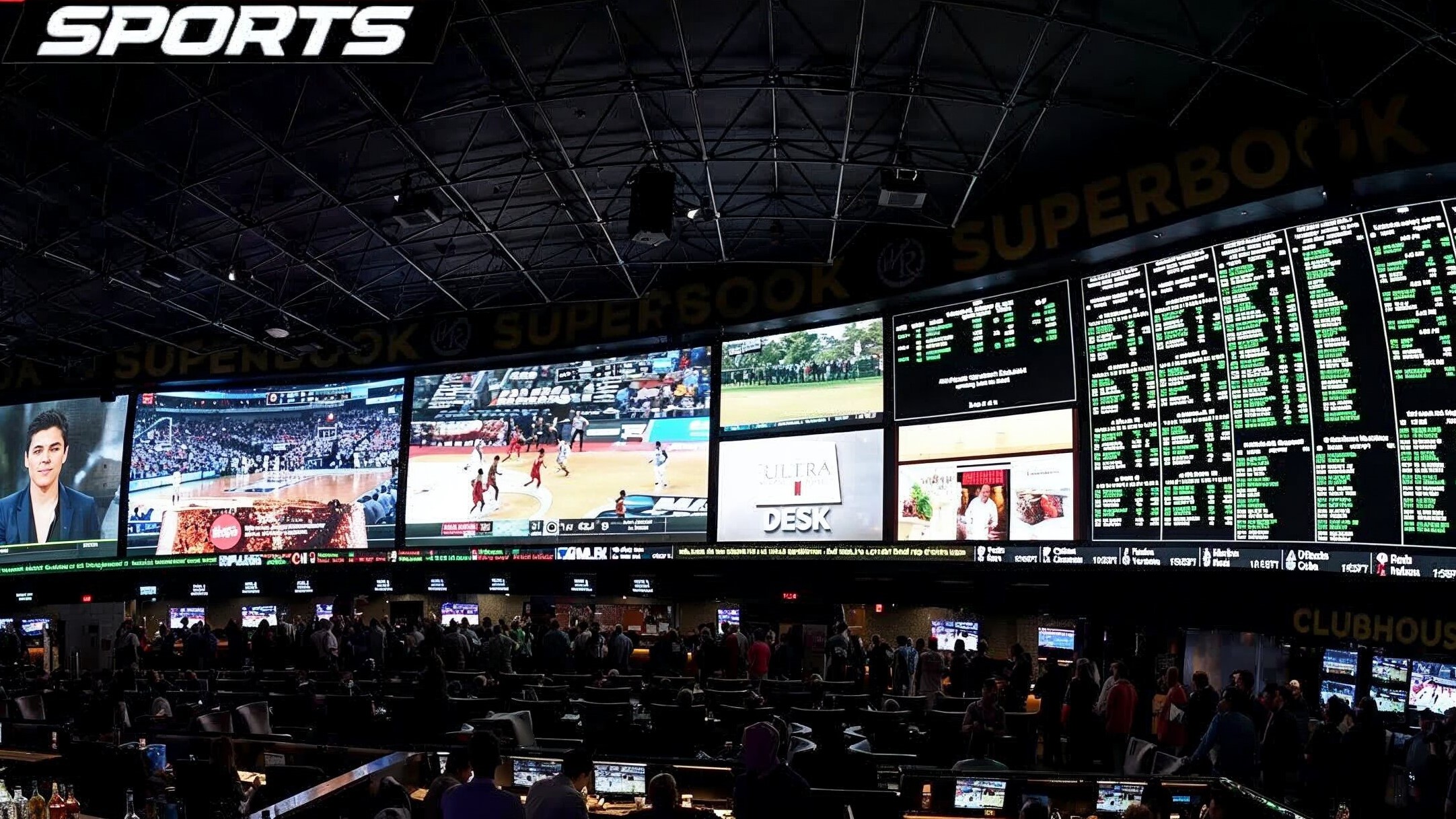Sports betting has become one of the most popular pastimes in South Africa. Whether it’s football, rugby, cricket, or even horse racing, millions of South Africans place bets regularly. But with such popularity, a key question emerges — are there any legal land-based sportsbooks in South Africa, or is everything shifting online?
Overview of the Gambling Landscape
South Africa boasts a mature gambling market that has developed steadily over the past few decades. The industry includes a diverse range of betting options such as land-based casinos, racecourses, betting shops, and rapidly growing online platforms. This mixture provides South African bettors with a variety of choices depending on their preferences and convenience. However, while the market appears vibrant and accessible, not every gambling operation is legal or regulated, which can sometimes create confusion and risk for players. This is why a clear understanding of the legal framework governing gambling in South Africa is crucial for anyone interested in betting responsibly. Knowing where and how to place bets legally can prevent legal issues and protect consumers from scams or unfair practices.
Popularity of Sports Betting in South Africa
Sports betting in South Africa is not just a pastime; it is a cultural phenomenon that cuts across social and economic lines. From the busy betting shops in Johannesburg and Cape Town to small informal venues in rural provinces, sports betting plays an integral role in everyday life for millions of South Africans. Football remains the most popular sport to bet on, followed closely by rugby, cricket, and horse racing. The atmosphere in many betting shops is lively, with fans gathering to place bets, watch live matches, and share predictions. This social aspect is part of what keeps land-based sportsbooks relevant and popular despite the surge in online betting.
Several factors have fueled the growth and popularity of sports betting in South Africa:
- The rise of smartphone and internet access, allowing bettors to place wagers anytime, anywhere.
- A younger demographic increasingly interested in online and mobile betting platforms.
- The availability of large betting operators who provide attractive odds, promotions, and sponsorships in sports events.
- The social and entertainment value associated with betting in physical shops, especially in rural and township areas where internet penetration may be limited.
While online betting continues to grow rapidly, land-based sportsbooks retain a special place in South Africa’s betting culture. Many South Africans still prefer the personal interaction and trust that come with walking into a licensed betting shop.
National Gambling Act and Its Role
The foundation of gambling regulation in South Africa lies in the National Gambling Act of 2004. This legislation was designed to create a unified regulatory framework for the country’s gambling industry, ensuring that betting activities are conducted fairly, transparently, and legally. The Act defines the types of gambling activities allowed, outlines licensing requirements, and sets out responsibilities for operators and regulators. Its primary goal is to protect consumers from fraudulent or unregulated gambling while fostering a responsible betting environment.
One of the most significant aspects of the National Gambling Act is the establishment of the National Gambling Board (NGB). The NGB serves as the national regulatory authority overseeing the gambling industry across provinces. Its roles include:
- Monitoring the compliance of licensed gambling operators with laws and regulations.
- Advising provincial gambling boards to ensure a consistent approach to regulation.
- Investigating illegal gambling operations and recommending enforcement actions.
- Protecting consumers through enforcing responsible gambling policies and fair play standards.
The Act balances the need for economic growth through gambling revenues with social responsibility and consumer protection, setting a strong legal basis for South Africa’s gambling industry.
Provincial Gambling Regulations
While the National Gambling Act provides overarching rules, each South African province retains authority to regulate gambling within its borders through its own provincial gambling board. This means gambling licensing, regulation, and enforcement are, in practice, provincial matters, creating a decentralized system. Each province can issue licenses, set specific rules, and operate independently, leading to variations in gambling availability and legality from one province to another.
For bettors and operators, this has several important implications:
- Licenses for land-based sportsbooks are issued and valid only within a specific province. A sportsbook legal in Gauteng may not automatically be licensed in Western Cape or KwaZulu-Natal.
- Provinces may have different limits on the number of licenses issued, types of permitted betting, and regulatory fees.
- Enforcement and consumer protection efforts can differ, sometimes causing confusion for bettors who travel between provinces.
Examples of provincial gambling boards include the Gauteng Gambling Board, Western Cape Gambling and Racing Board, and KwaZulu-Natal Gaming and Betting Board. Each manages gambling activities within its territory and enforces compliance with both provincial and national laws.
Licensing Authorities Explained
South Africa’s gambling industry is regulated through a two-tier system involving both the National Gambling Board and the provincial gambling boards. These bodies work together but have distinct roles to ensure the industry operates fairly and legally. The National Gambling Board provides oversight and ensures national standards are met, while the provincial boards handle licensing and direct regulation of operators within their areas.
Key licensing authorities include:
- National Gambling Board (NGB): Oversees the entire gambling industry nationally, advises provincial boards, monitors compliance, and manages national-level policy.
- Western Cape Gambling and Racing Board: Responsible for regulating gambling activities in the Western Cape, including licensing land-based sportsbooks and casinos.
- Gauteng Gambling Board: Regulates all gambling activities within Gauteng province, including Johannesburg and Pretoria.
- KwaZulu-Natal Gaming and Betting Board: Manages gambling regulations for KwaZulu-Natal province.
These authorities issue licenses to sportsbooks and betting shops, inspect premises, and ensure operators comply with gambling laws. They also provide resources for consumers to check the legitimacy of operators and lodge complaints. For bettors, confirming a sportsbook’s license with the relevant provincial board is a critical step to ensure legal and safe betting.
Legal Status of Land-Based Sportsbooks in South Africa
What Counts as a Land-Based Sportsbook
Land-based sportsbooks refer to physical betting shops where customers can visit in person to place bets on various sports events. These venues are staffed by agents who assist bettors in making wagers, explaining odds, and sometimes even providing advice on betting strategies. Unlike online sportsbooks, where all betting transactions and account management occur digitally through websites or mobile apps, land-based sportsbooks require a tangible location. This physical presence often appeals to bettors who prefer face-to-face interaction or lack reliable internet access.
These shops typically operate in high-traffic urban centers, malls, and sometimes in smaller towns and rural areas. They offer an environment where people can socialize, watch live sports together, and enjoy the thrill of betting in real-time. For many South Africans, the land-based sportsbook represents not just a place to bet, but also a community hub. This distinction is important because South African gambling law requires land-based sportsbooks to be physically licensed and regulated within the province they operate.
Licensed Land-Based Sportsbooks Across Provinces
Legal land-based sportsbooks do exist in South Africa, but their operation is tightly controlled by provincial gambling authorities. Each province issues licenses to sportsbooks that meet specific regulatory standards, including the requirement to have a physical storefront. Provinces such as Gauteng and Western Cape have a more developed network of licensed betting shops, reflecting the larger urban populations and greater demand.
Other provinces may have fewer licensed outlets due to smaller markets or stricter provincial policies. Because gambling regulation is provincial, bettors must be cautious and ensure that any betting shop they use is legally licensed in that specific province. The following table provides an overview of licensed land-based sportsbooks across some key provinces in South Africa:
| Province | Number of Licensed Land-Based Sportsbooks | Leading Operators | Licensing Authority |
| Gauteng | 100+ | Hollywoodbets, Supabets | Gauteng Gambling Board |
| Western Cape | 70+ | Hollywoodbets, World Sports Betting | Western Cape Gambling and Racing Board |
| KwaZulu-Natal | 40+ | Supabets, World Sports Betting | KwaZulu-Natal Gaming and Betting Board |
| Eastern Cape | 20+ | Regional Operators | Eastern Cape Gambling Board |
This provincial licensing system means bettors traveling between provinces may encounter sportsbooks with different operators or licensing statuses, so verifying legitimacy remains essential.
Differences Between Online and Land-Based Betting Laws
Although online and land-based sportsbooks often operate under the same legal umbrella, their licensing requirements and operational rules differ. Online sportsbooks require licenses that allow digital betting services and are not tied to a physical location, making their regulatory process distinct from land-based shops. Operators wishing to provide online betting usually need to register in multiple provinces or obtain national approval if available.
In contrast, land-based sportsbooks must have a registered physical location approved and regularly inspected by the provincial gambling board. This ensures compliance with safety standards, responsible gambling policies, and tax regulations. Furthermore, land-based sportsbooks are often subject to stricter local zoning and operational restrictions. This legal distinction is crucial for consumers, as land-based sportsbooks offer tangible venues with face-to-face service, whereas online sportsbooks provide convenience and accessibility without physical premises.
Top Legal Land-Based Sportsbooks in South Africa
Premier Betting Shops and Their Locations
South Africa’s land-based sportsbook market is dominated by several major brands with extensive physical networks. Hollywoodbets stands out as the largest operator, with hundreds of outlets nationwide, especially concentrated in Gauteng and Western Cape. Supabets and World Sports Betting are also prominent, operating multiple betting shops across major cities and provinces. These betting shops are often strategically located in busy commercial areas, shopping malls, and near sports venues, making them easily accessible.
Besides basic betting services, many of these shops create lively atmospheres by offering live sports broadcasts, allowing customers to watch events while placing bets. This experience enhances customer engagement and loyalty. For example, Hollywoodbets is known for sponsoring local sports teams and community initiatives, which further embeds it in South African sports culture. The presence of trusted, well-established brands helps reinforce the legitimacy of land-based sportsbooks and builds bettors’ confidence.
Features and Services Offered
Licensed land-based sportsbooks in South Africa provide more than just a place to place bets. They offer a comprehensive range of services designed to cater to both novice and experienced bettors. Common features include:
- Competitive odds across a wide variety of sports, from football and rugby to horse racing and cricket.
- Access to multiple betting markets, including live in-play betting and accumulators.
- Promotions and bonuses aimed at rewarding regular customers, such as loyalty programs and seasonal offers.
- Professional staff to assist with bet placements, explain betting types, and provide tips.
- Safe and regulated environments where customer funds and personal data are protected under provincial laws.
These sportsbooks also often provide educational materials and tools to promote responsible gambling. By combining a physical presence with excellent customer service, land-based sportsbooks remain attractive despite the growing popularity of online betting.




